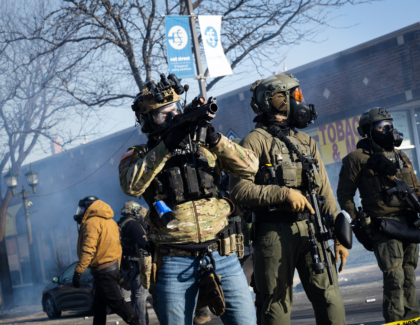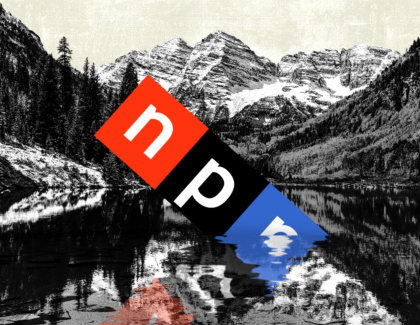Sign up for the daily CJR newsletter.
Fake news can be said to come in two distinct varieties: Funny but essentially harmless, a la “The Daily Show,” or not so funny, like paid flacks Armstrong Williams, Karen Ryan, and other journalists and PR operatives up for sale to anyone willing to pay them to tow the company line.
It’s no longer a secret that various federal agencies have made a habit of secretly paying commentators to spout administration talking points. But this has only been a part of the Bush administration’s stealth newsmaking program. In January, the Government Accountability Office (GAO), the investigative arm of Congress, issued a report slamming the Office of National Drug Control Policy for making and distributing video news releases (VNRs) saying that the unlabeled fake news segments — aired as real news on many local stations — constituted “covert propaganda.” Rather than clean up its act, the Bush administration simply dismissed the GAO’s finding out of hand, instructing all agencies to ignore the GAO and continue producing VNRs.
With much of the government shaking off the onus of responsibility, the FCC stepped in last week to try and assign somebody the responsibility of telling the public that what they’re watching is propaganda, not news. The commission released a “public notice” aimed at both newscasters and producers of VNRs, reminding them to follow disclosure protocol under the commission’s “sponsorship identification rules.” Part of this, according to the notice, states that, “[W]henever broadcast stations and cable operators air VNRs, licensees and operators generally must clearly disclose to members of their audiences the nature, source and sponsorship of the material that they are viewing. We will take appropriate enforcement action against entities that do not comply with these rules.”
Nice try, but producers and station managers likely see little to fear in statements like “operators generally must clearly disclose …” This borders on the nonsensical. What exactly is meant by “generally?” Most of the time? Some of the time? At least six times out of 10? Worse, the notice also says that “No sponsorship identification is necessary with regard to material that is furnished to the licensee ‘without charge or at a nominal charge.'” Since many VNRs are already given to stations for free, or at worst for a “nominal charge,” the new language basically means it’s business as usual.
In a more hopeful sign, the Senate voted 98-0 last week to pass a measure preventing government agencies from using taxpayer funds to pay PR firms to produce or distribute VNRs that are not clearly identified as such. Senators John Kerry (D-Mass.) and Frank Lautenberg (D-N.J.) are also reportedly putting together a VNR bill that would go even further, requiring that VNRs paid for by the federal government feature a disclaimer that runs continuously throughout the segment.
Unsurprisingly, companies that produce VNRs aren’t exactly happy with all the new attention. Douglas Simon, President & CEO of VNR producer DS Simon Productions fired off a somewhat self-important press release last week, claiming that the FCC’s notice “could have a chilling effect on freedom of the press.”
We’re all for freedom of the press here at CJR Daily World Headquarters, but the idea that there’s a danger to “free speech” in insisting that producers label ads as ads, even when they’re disguised as reporting, is beyond the pale.
Fact is, Simon’s company produced more than 200 PR videos last year, of which “a small number are government related.” So, in reality, this is likely more an issue of business revenue than it is one of free speech. But the issue for the public at large is far more serious. If the executive branch is allowed to keep producing fake news programming to tout its policies — and if station managers continue to be too lazy (or too dishonest) to correctly label those shams for what they are — then, sadly, we may well need Congress to step in and force both of them to act responsibly.
–Paul McLeary
Has America ever needed a media defender more than now? Help us by joining CJR today.






